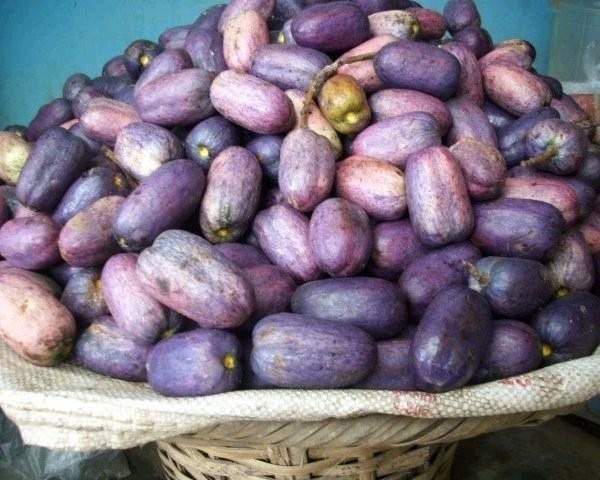
As we age, our bodies undergo various changes and our nutritional needs evolve. Eating a well-balanced diet is crucial for maintaining good health, especially as we enter our 50s and beyond. While fruits are generally considered to be healthy and beneficial for our bodies, there are certain fruits that individuals in this age group should consume in moderation to reduce the risk of stroke. In this article which is in accordance to healthline, we will explore the common fruits you should eat less of in your 50s and above to prevent stroke…..CONTINUE READING
1. Oranges:
Oranges are known for being rich in vitamin C and other essential nutrients. However, they are also high in potassium, which can be problematic for individuals at risk of stroke. High potassium levels can contribute to hypertension, a major risk factor for stroke. While it is important to consume fruits that provide vitamin C, individuals in their 50s and above should be cautious of the amount of oranges they consume and opt for other fruits that offer similar health benefits without the high potassium content.
2. Bananas:
Bananas are often considered a healthy snack due to their high potassium content. However, individuals in their 50s and above, especially those with hypertension or a family history of stroke, should consume bananas in moderation. Similar to oranges, the high potassium content in bananas can raise blood pressure levels and put individuals at a higher risk of stroke. It is recommended to choose fruits lower in potassium to ensure a more balanced and heart-healthy diet.
3. Avocados:
Avocados have gained immense popularity in recent years due to their numerous health benefits, including being a good source of healthy fats. However, avocados are also high in calories and fat, which can contribute to weight gain and obesity if consumed excessively. Being overweight or obese increases the risk of stroke and other cardiovascular diseases. While avocados can still be enjoyed occasionally, it is important to be mindful of portion sizes and opt for other fruits that are lower in fat and calories.
4. Papayas:
Papayas are tropical fruits packed with antioxidants, vitamins, and minerals that promote good health. However, they are also high in vitamin K, which can interfere with blood thinning medications, such as warfarin. Warfarin is commonly prescribed to individuals with certain heart conditions to prevent blood clotting and reduce the risk of stroke. Therefore, individuals taking blood thinners should limit their consumption of papayas and opt for fruits with lower vitamin K content.
5. Mangoes:
Mangoes are delicious and highly nutritious fruits that are enjoyed by people of all ages. However, they are high in natural sugars and carbohydrates, which can lead to a spike in blood sugar levels. Individuals in their 50s and above are more susceptible to developing insulin resistance and diabetes, both of which increase the risk of stroke. While enjoying mangoes occasionally is still possible, it is important to monitor portion sizes and choose fruits with lower sugar content as part of a well-rounded diet.
6. Grapes:
Grapes, particularly red and purple varieties, are rich in antioxidants and beneficial compounds like resveratrol. However, grapes are high in both natural sugars and calories. Regular consumption of large quantities of grapes can lead to weight gain, which in turn increases the risk of stroke. Additionally, grapes, especially the seeds, can interact with certain medications like blood thinners and affect their effectiveness. It is advisable to moderate grape consumption and choose other fruits that offer similar benefits without the potential risks.
7. Pineapples:
Pineapples are tropical fruits known for their tangy sweetness and high vitamin C content. However, they also contain bromelain, an enzyme that can interfere with certain medications, including blood thinners and antibiotics. Individuals on such medications should be cautious with their pineapple consumption and consult with their healthcare provider before consuming large amounts. It is crucial to prioritize medication safety and choose alternative fruits that do not interact with prescribed drugs.
While fruits are an essential part of a healthy diet, it is important to be mindful of the quantities consumed, especially for individuals in their 50s and above who are at a higher risk of stroke. Oranges, bananas, avocados, papayas, mangoes, grapes, and pineapples are some common fruits that should be eaten in moderation to reduce the risk of stroke. By incorporating a variety of fruits with lower potassium levels, lower fat and calorie content, and fewer interactions with medications, individuals can enjoy the benefits of fruits while protecting their cardiovascular health as they age. As always, it is advisable to consult with a healthcare professional or a registered dietitian for personalized dietary recommendations based on individual health conditions and medication usage…..CONTINUE READING